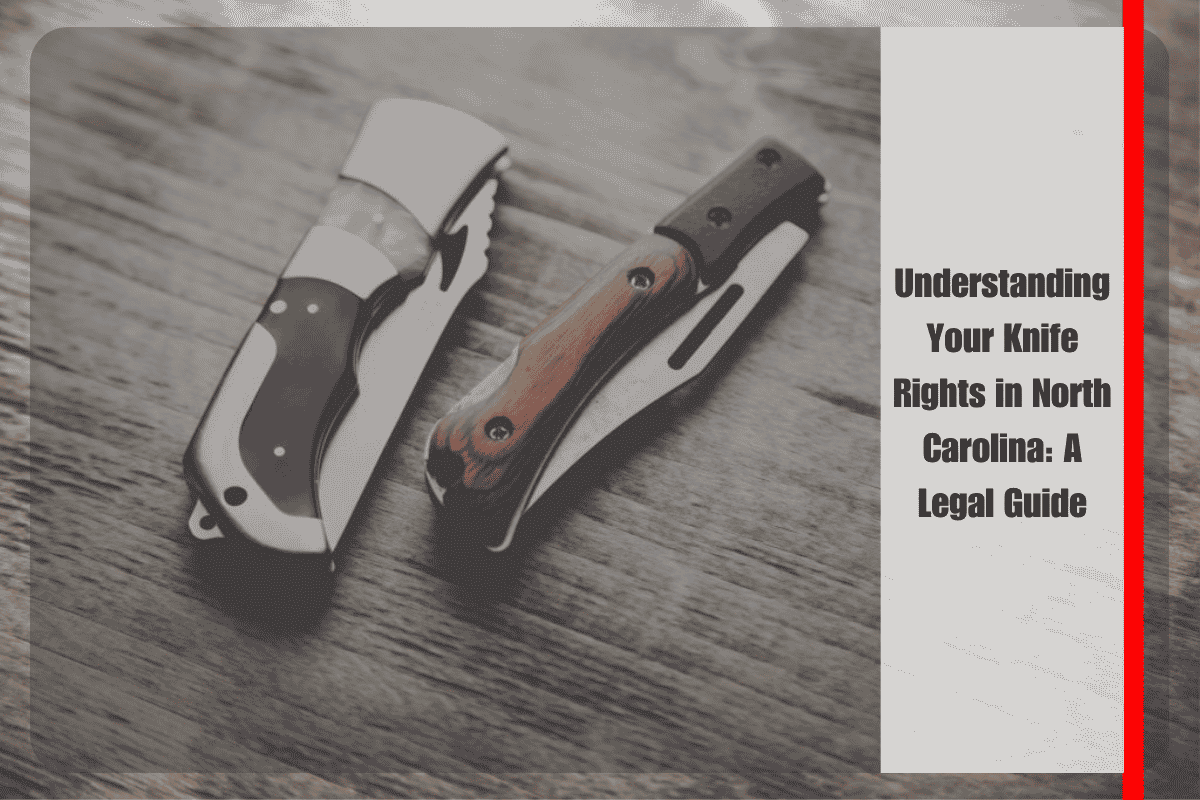Understanding your knife rights in North Carolina requires navigating a legal landscape that is generally permissive regarding ownership but has specific rules about how and where you can carry knives. In North Carolina, most types of knives—including fixed blades like bowie knives, dirks, and daggers—are legal to own and possess. There are no statewide bans on these knives, even in your home or collection, and even larger or more robust blades can be kept without special permits or licenses,
Open carry of knives is widely permitted in North Carolina. This means you can wear a knife on your belt or in a visible sheath in public spaces without violating state law. There are no legal restrictions on blade length for open carry, so whether you prefer a small utility knife or a large survival blade, you are generally within your rights as long as the knife is visible to others and you are not in a prohibited location, However, it’s important to be mindful of your surroundings and avoid causing alarm, as public perception and local law enforcement discretion can sometimes come into play.
Concealed carry of knives is where the law becomes more restrictive. North Carolina General Statute § 14-269 makes it unlawful to “willfully and intentionally” carry concealed on your person any bowie knife, dirk, dagger, razor, or similar deadly weapon, unless you are on your own property. The law does not provide precise definitions for these terms, which can lead to some interpretation by law enforcement. However, there is a notable exception for “ordinary pocket knives.” An ordinary pocket knife is defined as a folding knife with a blade that is less than four inches long, designed to be carried in a pocket or purse, and does not open automatically by a spring, explosive, or throwing action. Such knives can be carried concealed off school grounds without violating the law.
There are also specific locations where carrying any knife—open or concealed—is prohibited. These include schools, educational property, government buildings, courthouses, and certain public events. Violating these restrictions can result in serious legal consequences, including misdemeanor or felony charges, fines, and possible imprisonment.
Special types of knives, such as ballistic knives (those that fire projectiles) and switchblades that open automatically with the press of a button or other mechanism, are generally prohibited for civilian possession and carry, regardless of whether they are open or concealed. Law enforcement may possess ballistic knives for evidentiary or training purposes, but civilians are not permitted to own or carry them.
Recent legislative efforts, such as House Bill 439, have proposed changes to allow concealed carry of bladed weapons under certain conditions. As of now, these changes have not been enacted, but it is important to stay informed about potential updates to the law.
North Carolina offers broad freedom for knife ownership and open carry, but places clear restrictions on concealed carry and possession in certain sensitive locations. Always ensure your knife is carried openly if it is not an ordinary pocket knife, and avoid prohibited areas to stay compliant with state law. Understanding these distinctions will help you exercise your knife rights responsibly and avoid legal trouble.
Sources
[1] https://www.couteaux-morta.com/en/north-carolina-knife-laws/
[2] https://nobliecustomknives.com/us-knife-laws/north-carolina-knife-laws/
[3] https://www.battlbox.com/blogs/carry-laws/can-you-open-carry-a-knife-in-north-carolina-understanding-the-laws-and-guidelines
[4] https://www.reddit.com/r/NorthCarolina/comments/uxtzaz/anyone_know_if_north_carolina_has_a_blade/
[5] https://www.akti.org/state-knife-laws/north-carolina/












